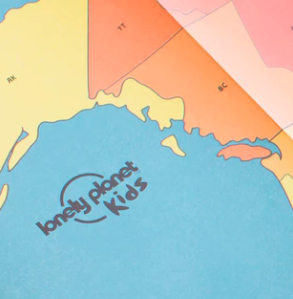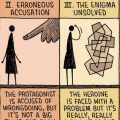Language Matters: Lessons in Editing from Mr. Rogers

I went to see the Mr. Rogers movie last week (“Won’t You Be My Neighbor”) and found it as heartwarming and uplifting as I expected.
If you’re able to see it in a theatre, don’t hesitate. At the screening I attended, everyone applauded at the end. This doesn’t happen much in Portland, Oregon. It felt like we were on a flight landing in Miami from Central America (it’s a thing).
Afterwards I stumbled on an article that details the level of precision that Fred Rogers put into editing the language used on his show. The man was relentlessly focused on connecting with children. He would go back and edit previous episodes if he found they no longer stood up, or if language had changed and required an update.
The article shows how a simple sentence would be deconstructed over and over:
1. “State the idea you wish to express as clearly as possible, and in terms preschoolers can understand.” Example: It is dangerous to play in the street.
2. “Rephrase in a positive manner,” as in It is good to play where it is safe.
3. “Rephrase the idea, bearing in mind that preschoolers cannot yet make subtle distinctions and need to be redirected to authorities they trust.” As in, Ask your parents where it is safe to play.
4. “Rephrase your idea to eliminate all elements that could be considered prescriptive, directive, or instructive.” In the example, that’d mean getting rid of “ask”: Your parents will tell you where it is safe to play.
5. “Rephrase any element that suggests certainty.” That’d be “will”: Your parents can tell you where it is safe to play.
6. “Rephrase your idea to eliminate any element that may not apply to all children.” Not all children know their parents, so: Your favorite grown-ups can tell you where it is safe to play.
7. “Add a simple motivational idea that gives preschoolers a reason to follow your advice.” Perhaps: Your favorite grown-ups can tell you where it is safe to play. It is good to listen to them.
8. “Rephrase your new statement, repeating the first step.” “Good” represents a value judgment, so: Your favorite grown-ups can tell you where it is safe to play. It is important to try to listen to them.
9. “Rephrase your idea a final time, relating it to some phase of development a preschooler can understand.” Maybe: Your favorite grown-ups can tell you where it is safe to play. It is important to try to listen to them, and listening is an important part of growing.
I so admire the precision of this work. When I write a major talk—the kind I’ll give over and over in a dozen or more cities—I try to think a lot about the words I use, the examples I provide, and so on. Of course, I’m no Fred Rogers. But the point is every word, every sentence, and every inflection matters. Language matters!
To give oneself so fully to something, and then do it over and over again every single day for decades… it’s no wonder the man made such an impact on so many people. This kind of consistency and important to detail is all too rare.
Link: Rules for Talking to Children
Image: Lonely Planet
###







